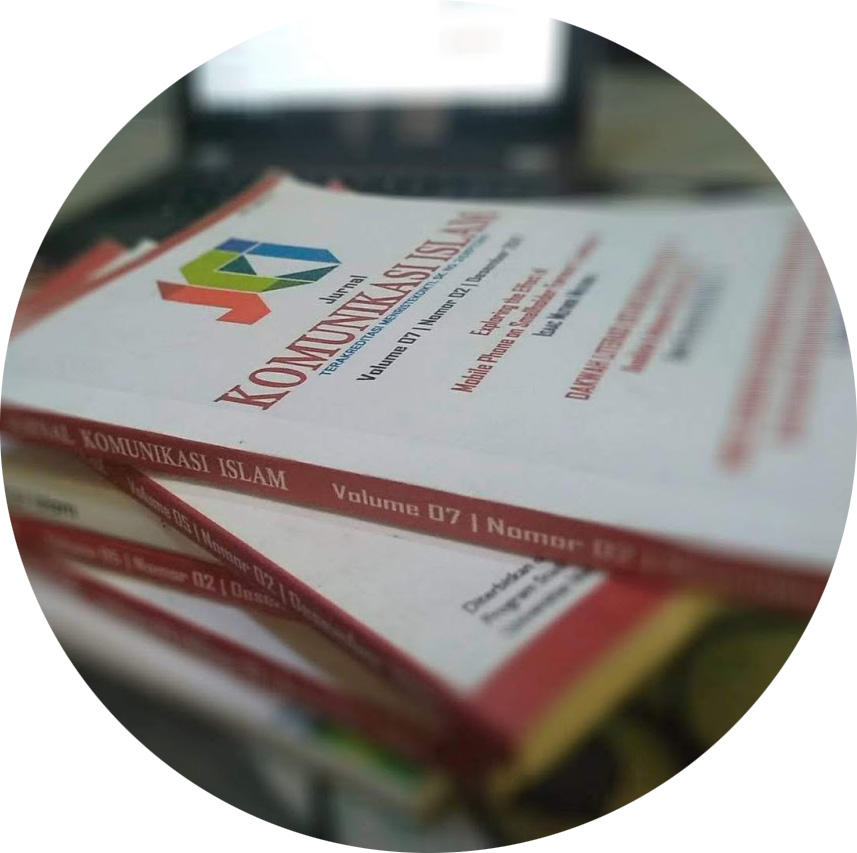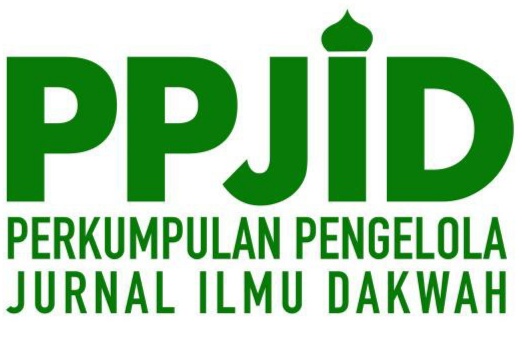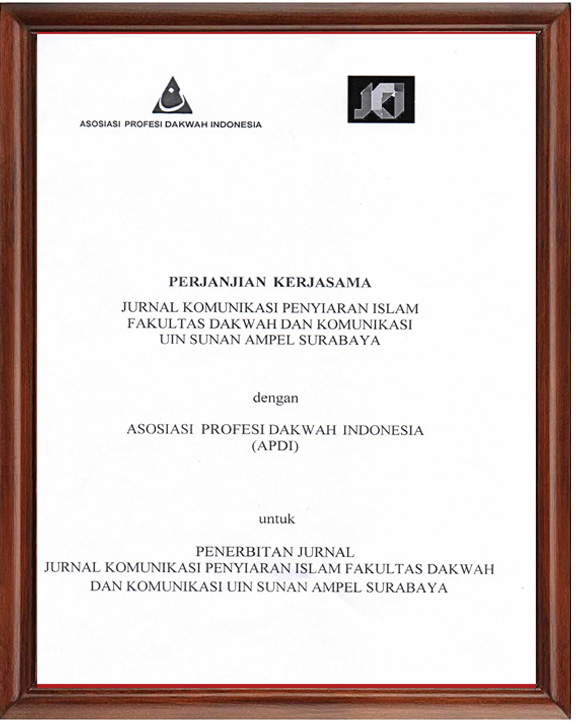Desain Pengembangan Laboratorium Dakwah: Studi Kasus UIN Walisongo Semarang
DOI:
https://doi.org/10.15642/jki.2019.9.1.128-153Keywords:
laboratorium dakwah, fase pengembangan, ketrampilanAbstract
Abstract: This article is the result of a descriptive qualitative research report in the laboratory of the Da'wah and Communication Faculty, Walisongo State Islamic University (UIN), Semarang. This study has concluded that the design of the Da'wah laboratory at the Da'wah and Communication Faculty of UIN Walisongo Semarang was developed based on the department, which included the Islamic Community Development Laboratory (PMI), the Islamic Communication and Broadcasting Laboratory (KPI), the Da'wah Management Laboratory (MD), the Guidance and Islamic Counseling Laboratory (BPI) In addition, the laboratory development is in line with university Tridharma. The laboratory development phase is carried out through four stages, namely the initiation phase and the construction of a quality management system, the optimization phase of academic support capabilities, the intensification and extensification phase of research services, and the external capacity building phase.
Downloads
References
Damayanti, A., & Isma, K. (2008). Manajemen & Teknik Laboratorium Prodi Biologi, Fakultas Saintek, UIN SUKA: Yogyakarta.
Emha, S.H dkk. (2002). Pedoman Penggunaan Laboratorium Sekolah. Bandung: PT Remaja Rosdakarya.
Koesmaji, W dkk. (2004). Teknik Laboratorium. Bandung: Jurusan Pendidikan Biologi FMIPA UPI.
Nuryani, R. (2004). Strategi Belajar Mengajar Biologi. Malang: Penerbit Universitas Negeri Malang.
Mustaji. (2015). Laboratorium: Perspektif teknologi pembelajaran. Disajikan dalam Workshop Penyusunan Panduan Penggunaan Laboratorium di Fakultas Ilmu Pendidikan Universitas Negeri Surabaya.
Downloads
Published
How to Cite
Issue
Section
License
Copyright (c) 2019 Agus Riyadi

This work is licensed under a Creative Commons Attribution-ShareAlike 4.0 International License.













